Thoughts for the Month
The Jesus I know is no cold, hard Iron-Christ; nor does Jesus deserve to be reduced to smug, glib and uncompassionate irrelevancies when the real meaning of His love is what people need so desperately.
Annunciation
(Thanks To Pat Kennedy)
 It seems I must have been more fertile than most to have taken that wind-blown thistledown softly-spoken word into my body and grown big-bellied with it. Nor was I the first: there had been rumours of such goings-on before my turn came—tales of swansdown. Mine had no wings of feathers actually but it was hopeless trying to convince them.
It seems I must have been more fertile than most to have taken that wind-blown thistledown softly-spoken word into my body and grown big-bellied with it. Nor was I the first: there had been rumours of such goings-on before my turn came—tales of swansdown. Mine had no wings of feathers actually but it was hopeless trying to convince them.
They like to think it was mystical encounter, although they must know I am not of that fibre—and to say I was ‘trouble’ is laughable.
What I do remember is a great rejoicing, my body’s arch and flow, the awe, and the ringing and singing in my ears— and then the world stopped for a little while. But still they will keep on about the Word, which is their name for it, even though I’ve told them that is definitely not how I would put it.
I should have known they’d try to take possession of my ecstasy and swaddle it in their portentous terminology. I should have kept it hidden in the dark web of my veins . . .
Though this child grows in me—not unwanted certainly, but not intended on my part; the risk did not concern me at the time, naturally. I must be simple to have told them anything. Just because I stressed the miracle of it they’ve rumoured it about the place that I’m immaculate—but then they always were afraid of female sexuality.
I’ve pondered these things lately in my mind. If they should canonize me (setting me up as chaste and meek and mild) God only knows what nonsense they’ll visit on the child.
The Penguin Book of Australian Women Poets,
ed. S. Hampton, K. Llewellyn. 1986-88)

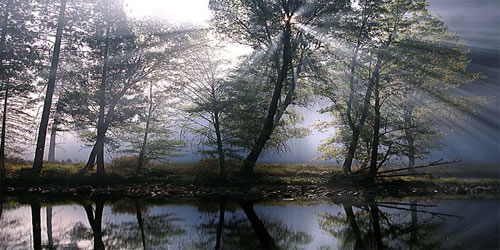
What’s Your Allegiance?
Which side are you on? It’s an important question in sport, politics and war. Sometimes it is an important question at home or work. Where is your allegiance? With whom are you allied? On which side of the issue do you come down? These questions help define us as persons. They help us know whom we can count on and of whom we should be leery. They also plant the seeds of conflict. They may circumscribe the extent of our good will and compassion.
Our allegiances create bonds with others in our group. They may also create opposition. When you ally with a particular group, it may mean you are opposed to another group. Belonging can be comforting and satisfying. It can help us define our goals and values. It can also create conflict and callousness. People rarely intentionally hurt members of their in-group. The out-group may be a fair target of aggression. We can ignore the needs of those people over there if we don’t identify with them.
Think about where your allegiances lie. With what do you align yourself? If you are in, who is out? What do you get from the alliance and what do you lose?
Is your allegiance to?
Country
State
City
Sports team
Club
Class
Religion
Family
Race
Ethnic group
The Absolute
Department
Work group
Clique
Self
Humanity
The planet
The cosmos
God
The Tao
The laws of Nature
Sexual Orientation
Employer
Consider the possibility that a spiritual or ethical goal may be to widen the scope of your allegiances so that you are more inclusive and less oppositional. How might you do that?
Ponder how it may be possible to oppose that which deserves opposition while maintaining an open, inclusive and compassionate heart.
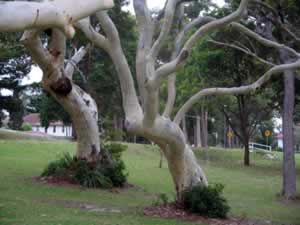
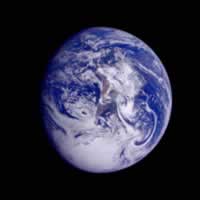
let us live
unfashionably.
Let us be poor
in all but truth and courage.
While love is dangerous
Let us gather blossoms
under fire.
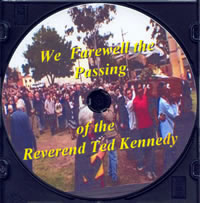 Recently we received the DVD– “WE FAREWELL THE PASSING OF THE REVEREND TED KENNEDY” which Rhonda and friends put together. Already they have made 100 copies and I am sure there will be more requested. It is a wonderful story of the last journey of Ted in Redfern. There were so many tributes to this man. Faces of past and present were there in force. Aboriginal people honoured Ted with a ritual of their ancient culture. It is really worth seeing if you have not as yet. Also on Good Friday on the Compass Programme at 7.30 pm Ted’s life and funeral will be featured. Thank you Rhonda for taking on this mammoth task.
Recently we received the DVD– “WE FAREWELL THE PASSING OF THE REVEREND TED KENNEDY” which Rhonda and friends put together. Already they have made 100 copies and I am sure there will be more requested. It is a wonderful story of the last journey of Ted in Redfern. There were so many tributes to this man. Faces of past and present were there in force. Aboriginal people honoured Ted with a ritual of their ancient culture. It is really worth seeing if you have not as yet. Also on Good Friday on the Compass Programme at 7.30 pm Ted’s life and funeral will be featured. Thank you Rhonda for taking on this mammoth task.HOMILY On Refugees and Asylum Seekers 4th November 2001 St Vincent’s Church, Redfern
On that most eventful day, 11th of September, the Dalai Lama issued a call to reflect on.
We will set the course for tomorrow, today. At this hour. In this moment. Let us seek not to pinpoint blame, but to pinpoint cause.
Unless we take time to look at the cause of our experience, we will never remove ourselves from the experiences it creates. Instead, we will forever live in fear of retribution from those within the human family who feel aggrieved, and likewise, seek retribution from them.
The message we hear from all sources of truth is clear: We are all one. That is a message the human race has largely ignored. Forgetting this truth is the only cause of hatred and war, and the way to remember is simple: Love, this and every moment.
If we could love even those who have attacked us, and seek to understand why they have done so, what then would be our response? Yet if we meet negativity with negativity, rage with rage, attack with attack, what then will be the outcome?
These are the questions that are placed before the human race today. They are the questions that we have failed to answer for thousands of years. Failure to answer them now could eliminate the need to answer them at all.
So, talk with God today. Ask God for help, for counsel and advice, for insight and for strength and for inner peace and for deep wisdom. Ask God on this day to show us how to show up in the world in a way that will cause the world itself to change. And join all those people around the world who are praying right now, adding your Light to the Light that dispels all fear.
That is the challenge that is placed before every thinking person today. Today the human soul asks the question: What can I do to preserve the beauty and the wonder of our world and to eliminate the anger and hatred – and the disparity that inevitably causes it – in that part of the world which I touch? A central teaching in most spiritual traditions is: What you wish to experience provide for another.
Look to see, now, what it is you wish to experience – in you own life, and in the world. Then see if there is another for whom you may be the source of that. If you wish to experience peace, provide peace for another. If you wish to know that you are safe, cause another to know that they are safe. If you wish to heal your own sadness or anger, seek to heal the sadness or anger of another.
Those others are waiting for you now. They are looking to you for guidance, for help, for courage, for strength, for understanding, and for assurance at this hour. Most of all, they are looking for love.
The World Council of Churches sent a communique to the United Nations Secretary Kofi Annan regarding recent events:
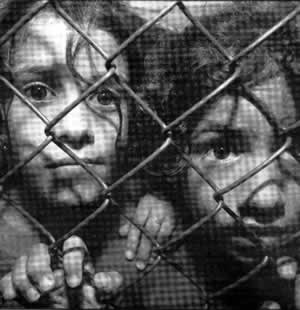 The drowning of 350 men, women and children on October 19th has riveted us all into a state of shock and revulsion because of the callous dismissal of the tragedy, as not being our problem, and we wish to express our sympathy to the relatives of those who have borne such suffering.
The drowning of 350 men, women and children on October 19th has riveted us all into a state of shock and revulsion because of the callous dismissal of the tragedy, as not being our problem, and we wish to express our sympathy to the relatives of those who have borne such suffering.
The Aboriginal lawyer, Mick Dodson, on 31st October 2001 has complained about the current state of Australian politics:
“There seems to be a deliberate appeal to the worst of the prejudices, bigotry and ignorance of some. This is the politics of difference and intolerance. The contest of ideas is nowhere to be seen.”
It is a campaign that is elusive, almost sneaky on the question of race. Xenophobic fear of the other is being involved in the most despicable way as a rallying call to security of national borders and nationalism itself. Asylum seekers in boats have replaced indigenous Australians as the scapegoats for this fear and hate. Prejudice takes over from reason; humanity gives way to hysteria.
Our poorest Pacific neighbours are called upon to return or accept favours in a makeshift solution to the desperation of the desperate. Compassion and humanity take a back seat, for we are told we have already been far too generous and enough is enough. Small Pacific nations now need that money and more to act as surrogates for our humanity – our compassion – our concern.
Anyone can be a refugee. Boat people are ordinary men and women, many of them urban professionals, who are fleeing their countries because of war or persecution.
Nearly all refugees are genuine. 93% of Afghans and 97% of Iraqis are found to be legitimate asylum seekers. Anyone who does not fulfill the criterion of having a ‘well founded fear of persecution’ is sent back to their homeland.
Boat people are not illegal. Under the UN Refugee Convention, which has applied for fifty years, Australia has an obligation to take in asylum seekers and assess their claims.
They are in a totally different category from immigrants. The real ‘illegals’ are the 14,000 Britons or Americans caught each year for overstaying their visas. These people are not put in detention centres.
There is no queue to jump. Australia has no embassy in Iraq or Afghanistan for people to apply for a visa. In overseas refugee camps there is frequently no resettlement process available. Where one exists it is often ad hoc, agonisingly slow and corrupt.
Australia receives very few asylum seekers compared to other countries. Last year it received 4,174. Sweden with about half our population, receives the same number as Australia, Iran and Pakistan, two of the world’s poorest countries, each hosted over a million Afghan refugees.
No other country imprisons its asylum seekers. In Australia they are placed indefinitely in detention centres in harsh conditions without access to services. Canada allows its asylum seekers to live in the community. In Sweden they are allowed out of detention as soon as they have gone through identification and criminal screening.
Australia does not even fill its small quota of 12,000 refugees per annum. Not one of 400 allocated ‘Women at Risk’ places has ever been filled.
Almost one in five people in detention centres is a child. In Sweden the maximum time a child is kept in custody is six days. In Australia we keep children in detention indefinitely.
60% of asylum seekers are victims of torture or severe trauma. But in Australia they are treated like criminals rather than ordinary people fleeing persecution.
Australia is now sending troops into Afghanistan. Many of the boatpeople are fleeing the regime we are now fighting and they deserve our protection. Iraqis, too, are escaping the excesses of Saddam Hussein. Asylum seekers see Australia as a safe and democratic country in which they hope to have a far better future.
Remember the Snowy Mountains Scheme? After World War II it was built largely with the labour of thousands of refugees. Let us again give refugees a chance to contribute to this country in the 21st century. Let’s give them a fair go!
Let us not be blind to the finest dictates of all religions. Welcome the stranger.
My religion is kindness.